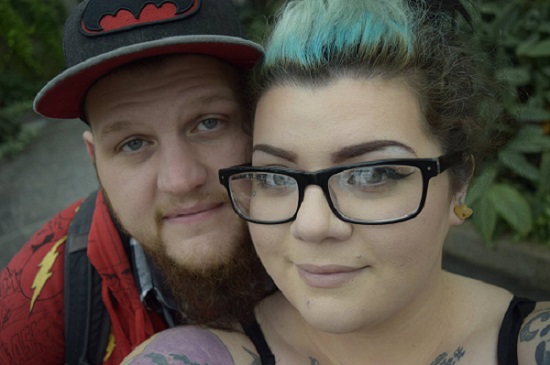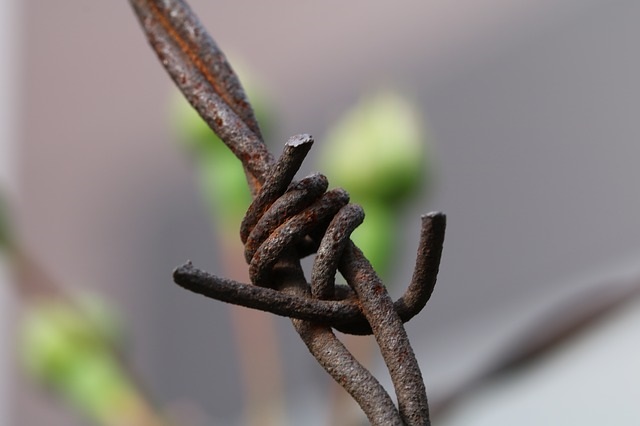For the first two wonderful amazing years of our life together, it all seemed like a dream. Everything was a dream; no fighting (still don’t), no needing time apart only wanting to spend time with one another. Everything was perfect. It was just how I pictured a perfect marriage should be. We tried to start a family but were having a difficult time because my wife had PCOS (polycystic ovarian syndrome). After six months of trying, we sought the help of a fertility doctor.
February 2016, we had just moved in to our new apartment, and had all the hope in the world that this was our year. My wife started her medications and we followed the rules and guidelines for us to start our family. One night we were talking on our deck about the future, where we should move to raise our family, where we could afford rent and still be close to her parents as they were very excited for grand babies. When we tried to get inside, we noticed that the door had locked behind us and now we were stuck on our deck (thank the universe it was summer). After a long while, we got help and made it inside to go to bed. Then all of the sudden my wife’s pain and discomfort shot up from a high 6 that it had been at for at least a week to about a 10.
We went to the hospital, and after waiting for what seemed like forever, we finally saw a doctor. He said bluntly that my wife had a softball-sized cyst that was causing her pain. They never told us this on her last ER visit, which was 4 days prior to this one. At that visit, they brushed off her pain and she was given pills to “help” with her pain until it passed. How could they have not seen a softball-sized cyst?
After many more hours of IV pain meds and no eating, she had emergency surgery. She ended up her losing a fallopian tube because it had been twisted and was dead from the cyst. As she recovered, it was not long before she could not move again because the pain was back and at times was so much worse.
She stopped eating from the pain and lost so much weight. She was in such a dark place it was all I could do not too just cry and beg her not to give up. One night we went to another hospital, one because the ER had quicker wait times, but for another doctors opinion. That is when a simple sentence from that amazing doctor’s mouth changed everything. She said, “I think you may have endometriosis,” and asked if they saw any endometriosis during the surgery. These words will haunt me until my grave.
After what seemed like every possible test they could run, they finally agreed to do another surgery to look for endometriosis. Sure as shit, they found it and “burnt it out”. Since that surgery, nothing has changed, except for the worse. I have read what feels like everything I can find on endometriosis. I came across another man’s perspective on dealing with his wife’s endometriosis and it made me tear up because I know the feeling. There is a gut wrenching feeling of helplessness, a feeling as if you have let your wife down for not being able to take any pain away, how the only thing you can do is make sure everything is good and that she has nothing to worry about. I try to make sure she feels taken care of. I try to help her feel as good as she can while battling this.
The good days are amazing and it is as if all of this becomes a distant scary memory but it can change it a heartbeat. One minute everything is good and the next, she just wants to lay down and rest because the pain is kicking her ass. There are 3am pep talks that keep her grounded and feeling positive in a world of what has quickly become negative. There are special dinners brought home to her to make her feel more human than she has all day.
One of the hardest parts for me is the helplessness. It is an overwhelming pit of darkness to look in to the eyes of the love of my life and help her believe as strongly as I do there is still hope for a pain free future, that all of this will be nothing more of a bad memory for her and for us. The absolute hardest is to not be able to have children with my wife, that we made ourselves. It is a tearing feeling. One second I feel fine and the next it feels like my heart has been ripped out of my chest and crushed in front of me.
Since day one of her battle with this gut wrenching disease I told her, and have reminded her, for better or worse, in sickness and health. I said those words with all my heart and for the rest of my days and beyond I mean them. The only advice I can give for the boyfriends, girlfriends, wives and husbands is be there, don’t brush it off like so many do in the world. If it is three in the morning and they need to talk, listen. If they need something to help them feel better, get them that. Even if it is the last of your money until payday. They ask for it because it might just make it a good day instead of a bad day. Remind them you are not going anywhere and that you are in it for the long haul. It might seem like you keep saying it, but to them it means the world to hear those words. Tell them they are loved and supported in this fight. They may already know that but it makes them feel special.
We Need Your Help
Hormones Matter needs funding now. Our research funding was cut recently and because of our commitment to independent health research and journalism unbiased by commercial interests we allow minimal advertising on the site. That means all funding must come from you, our readers. Don’t let Hormones Matter die.








